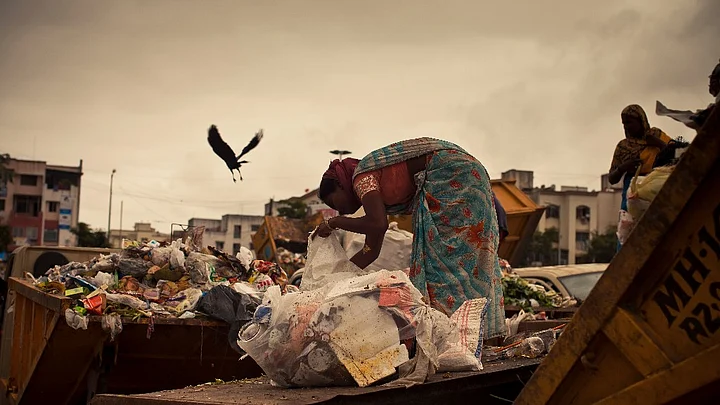Prime Minister Narendra Modi hopes to bring about a “Swachh Bharat” (clean India) by 2019. While many are cynical about the idea, a group of women in Pune have decided to take it upon themselves to help make a clean India a reality.
Solid Waste Collecting and Handling (SWaCH) is India’s first wholly owned cooperative of about 2,800 self-employed waste pickers. Women constitute a whopping 75 percent of the workforce at SWaCH.
Unsegregated waste is an environmental hazard, not to mention the adverse health effects it can bring about. This is where SWaCH comes in. The members of the organisation have been tirelessly working to educate residents about effective and hygienic waste disposal methods.
The Red Dot Campaign
SWaCH workers deal with mounds of waste every day, including truckloads of used sanitary pads, diapers, tampons and condoms. These items are all made of non-degradable material and have to be separated from the recyclable and the wet waste.
During sorting, waste pickers are exposed to the harmful pathogens from such waste, making them prone to disease, such as hepatitis, E coli, salmonella and typhoid.
Currently, people tend to simply wrap up these items in paper before disposal. And this is what SWaCH’s Red Dot campaign hopes to educate against. Under the campaign, residents are encouraged to wrap up the sanitary waste in a newspaper and mark it with a large red dot in order to help waste pickers identify and segregate without being exposed to it.
In 2016, the Ministry of Environment and Forests made it compulsory for households to segregate sanitary waste in clearly marked bags.
People often cringe when forced to deal with their own sanitary waste. Can you imagine what a waste-picker goes through while having to deal with truckloads of such, poorly packaged waste from households?
“Opening sanitary waste is disgusting, and an assault on their dignity and health without any financial gain,” says Suchismita Pai, outreach manager at the organisation.
“SWaCH manages 20 tonnes of unwrapped sanitary waste every day, which is a serious health risk for us," says waste-picker Mangal Gaikwad.
"We process 650 tonnes of waste a day and have to open every packet during segregation. Imagine our horror every time we come across a blood-soaked pad. We talk about recycling but what about our dignity and health?" she says.
Through the Red Dot campaign, these women hope to spark a conversation and subsequently eradicate the stigma surrounding menstruation.
A Day In the Life of a Female Waste-Picker
SWaCH is helping these women take control of their lives. The women volunteer to learn waste-segregation, in exchange for facilities like medical insurance and education loans and scholarships for their children.
A SWaCH member’s work day begins at 6 am or earlier.
Between 9 am and 1 pm, she goes from door to door to collect waste from citizens. At some houses, she collects the waste from the gate.
Sometimes she climbs the stairs so as to collect waste from high rise apartment buildings.
Around three or four hours after collection, the garbage is segregated into wet and organic and is handed over to the Pune Municipal Corporation’s truck. The recyclable waste is sent to the scrap dealers.
Many of these women live in Pune slums. I never imagined I could afford higher education for my children. I was worried they would end up on the street as well, one woman says.
The collective has helped a number of women in Pune’s slums take charge of their lives. And their efforts will lead to a cleaner India, one replete with opportunities for their children.
(At The Quint, we question everything. Play an active role in shaping our journalism by becoming a member today.)
